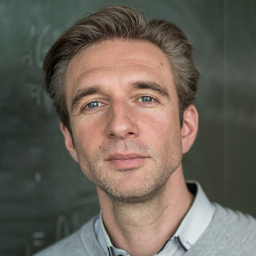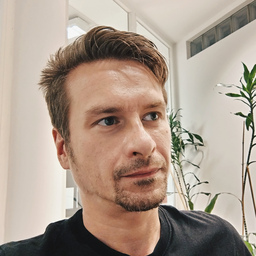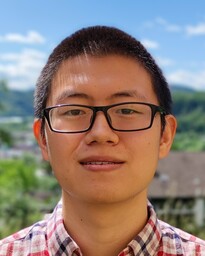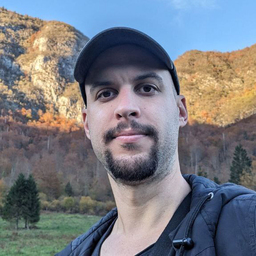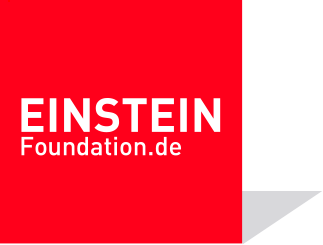What we are interested in
Exploring the multifaceted aspects of quantum computation and quantum information theory. The goal is to the develop application of new algorithms and quantum-inspired methods for solving problems in various fields such as dynamical systems, Bell nonlocality, and supervised learning. Our research encompasses a wide range of topics and utilizes a variety of mathematical tools, including but not limited to: tensor decompositions and tensor-based algorithms, convex optimization methods, operator theory (in particular transfer operators), numerical methods for partial differential equations, data-driven and kernel-based techniques.
Through our work, we aim to advance knowledge and understanding in the field of quantum science and technology by developing mathematically profound methods which exploit the potential of quantum mechanical concepts.
Researchers
Doctoral candidates
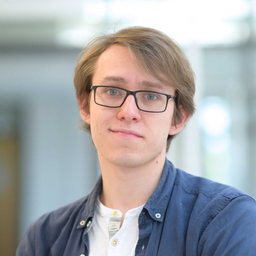
khoruzhii (at) zib.de

knebel (at) zib.de
Undergraduate and Phase I Students
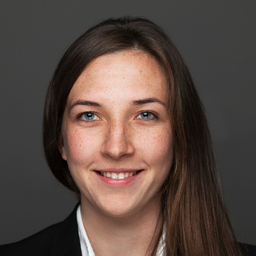
penz-matzalik (at) zib.de
Former members
- Marian Stengl (2022–2025)
- Sébastien Designolle (2022–2025)
- Arwed Steuer (2022–2025)
- Nguyen Hanh Dung Jung (2024–2025)
- Hugo Abreu (2024)
- Thomas Bake (2022–2024)
- Gabriele Iommazzo (2022–2024)
- Zarin Shakibaei (2022–2024)
💬 Talks and posters
Conference and workshop talks
- Jul 2024
- Bell and Grothendieck Meet Frank-Wolfe by Sébastien Designolle
25th International Symposium on Mathematical Programming (ISMP), Montréal - Feb 2024
- Fredholm Integral Equations for the Training of Shallow Neural Networks by Patrick Gelß
7th SIAM conference on uncertainty quantification (SIAM UQ) - Sep 2023
- Fredholm Integral Equations for the Training of Shallow Neural Networks by Patrick Gelß
7th ZIB-IMI-ISM-NUS-RIKEN-MODAL Workshop, Berlin - Jun 2023
- Fredholm Integral Equations for the Training of Shallow Neural Networks by Patrick Gelß
Workshop on Quantum Computation and Optimization, Berlin - Jun 2023
- Improved Local Models and New Bell Inequalities by Sébastien Designolle
Workshop on Quantum Computation and Optimization, Berlin - Mar 2023
- Improved Local Models and New Bell Inequalities Via Frank-Wolfe Algorithms by Sébastien Designolle
15th annual meeting photonic devices, Berlin - Sep 2022
- Low-rank Tensor Decompositions of Quantum Circuits by Patrick Gelß
6th ZIB-IMI-ISM-NUS-RIKEN-MODAL Workshop, Tokyo / Fukuoka - May 2022
- Low-rank Tensor Decompositions of Quantum Circuits by Patrick Gelß
3rd workshop on quantum algorithms and applications, Brussels
Research seminar talks
- Nov 2024
- Bell and Grothendieck Meet Frank-Wolfe by Sébastien Designolle
ICFO seminar, Castelldefels - Nov 2024
- Bell and Grothendieck Meet Frank-Wolfe by Sébastien Designolle
Valladolid seminar, Valladolid - Oct 2024
- Bell and Grothendieck Meet Frank-Wolfe by Sébastien Designolle
quantum information & quantum computing working group seminar, Warsaw - Nov 2023
- Frank-Wolfe Algorithms for Bell Nonlocality by Sébastien Designolle
IRIF seminar, Paris - Nov 2023
- Frank-Wolfe Algorithms for Bell Nonlocality by Sébastien Designolle
QAT seminar, Paris - Nov 2023
- Frank-Wolfe Algorithms for Bell Nonlocality by Sébastien Designolle
SIERRA seminar, Paris - Nov 2023
- Frank-Wolfe Algorithms for Bell Nonlocality by Sébastien Designolle
PhiQus seminar, Palaiseau - Nov 2023
- Frank-Wolfe Algorithms for Bell Nonlocality by Sébastien Designolle
LIP6 seminar, Paris - Oct 2023
- Frank-Wolfe Algorithms for Bell Nonlocality by Sébastien Designolle
QINFO seminar, Lyon - Jul 2023
- Fredholm Integral Equations for the Training of Shallow Neural Networks by Patrick Gelß
IBM NOIP seminar, Berlin - Jun 2023
- Fredholm Integral Equations for the Training of Shallow Neural Networks by Patrick Gelß
DESY CQTA seminar, Zeuthen - Mar 2023
- Improved Local Models and New Bell Inequalities Via Frank-Wolfe Algorithms by Sébastien Designolle
JQIT seminar, Krakow - Feb 2023
- Improved Local Models and New Bell Inequalities Via Frank-Wolfe Algorithms by Sébastien Designolle
Atomki seminar, Debrecen - Feb 2023
- Improved Local Models and New Bell Inequalities Via Frank-Wolfe Algorithms by Sébastien Designolle
IQOQI seminar, Vienna - Oct 2022
- The Tensor-train Format and Its Applications by Patrick Gelß
Tensor Learning Team Seminar
📝 Publications and preprints
Preprints
- Zambrini Cruzeiro, E., Gonzales-Ureta, J. R., Choudhary, R., Abreu, H., Cabello, A., and Designolle, S. (2026). Exploring Bell Nonlocality with Extremal Non-Signaling Boxes.
[arXiv]
[BibTeX]
@misc{2026_EmmanuelEtAl_EnsboxesBellnonlocality_2601-08924, archiveprefix = {arXiv}, eprint = {2601.08924}, arxiv = {arXiv:2601.08924}, primaryclass = {quant-ph}, year = {2026}, author = {Zambrini Cruzeiro, Emmanuel and Gonzales-Ureta, Junior R. and Choudhary, Raman and Abreu, Hugo and Cabello, Adán and Designolle, Sébastien}, title = {Exploring Bell Nonlocality with Extremal Non-Signaling Boxes}, date = {2026-01-13} } - Xu, L., Liu, Y.-C., and Pokutta, S. (2025). Convex Semidefinite Tensor Optimization and Quantum Entanglement.
[arXiv]
[BibTeX]
@misc{2025_XuLiuPokutta_Semidefinitetensors_2511-05258, month = nov, archiveprefix = {arXiv}, eprint = {2511.05258}, arxiv = {arXiv:2511.05258}, primaryclass = {math.OC}, year = {2025}, author = {Xu, Liding and Liu, Ye-Chao and Pokutta, Sebastian}, title = {Convex Semidefinite Tensor Optimization and Quantum Entanglement}, date = {2025-11-07} } - Designolle, S. (2025). Most Incompatible Measurements and Sum-of-squares Optimisation.
[arXiv]
[BibTeX]
@misc{2025_Designolle_IncompatiblemeasurementsSumofsquares_2509-10381, archiveprefix = {arXiv}, eprint = {2509.10381}, arxiv = {arXiv:2509.10381}, primaryclass = {quant-ph}, year = {2025}, author = {Designolle, Sébastien}, title = {Most Incompatible Measurements and Sum-of-squares Optimisation}, date = {2025-09-12} } - Li, J., Liu, Y.-C., Chen, X.-X., Meng, Z., Fan, X.-Y., Wang, W.-H., Ma, J., Zhang, A.-N., and Shang, J. (2025). Real-time Preparation and Verification of Nonstabilizer States.
[arXiv]
[BibTeX]
@misc{2025_JianEtAl_Qsvnonstabilizer_2507-11180, archiveprefix = {arXiv}, eprint = {2507.11180}, arxiv = {arXiv:2507.11180}, primaryclass = {quant-ph}, year = {2025}, author = {Li, Jian and Liu, Ye-Chao and Chen, Xiao-Xiao and Meng, Zhe and Fan, Xing-Yan and Wang, Wen-Hao and Ma, Jie and Zhang, An-Ning and Shang, Jiangwei}, title = {Real-time Preparation and Verification of Nonstabilizer States}, date = {2025-07-15} } - Khoruzhii, K., Gelß, P., and Pokutta, S. (2025). Faster Algorithms for Structured Matrix Multiplication Via Flip Graph Search.
[arXiv]
[BibTeX]
@misc{2025_KhoruzhiiGelssPokutta_Flipgraphsearch_2511-10786, archiveprefix = {arXiv}, eprint = {2511.10786}, arxiv = {arXiv:2511.10786}, primaryclass = {cs.SC}, year = {2025}, author = {Khoruzhii, Kirill and Gelß, Patrick and Pokutta, Sebastian}, title = {Faster Algorithms for Structured Matrix Multiplication Via Flip Graph Search}, date = {2025-11-13} } - Liu, Y.-C., Halbey, J., Pokutta, S., and Designolle, S. (2025). A Unified Toolbox for Multipartite Entanglement Certification.
[arXiv]
[BibTeX]
@misc{2025_LiuHalbeyPokuttaDesignolle_Unifiedtoolboxmultipartite_2507-17435, archiveprefix = {arXiv}, eprint = {2507.17435}, arxiv = {arXiv:2507.17435}, primaryclass = {quant-ph}, year = {2025}, author = {Liu, Ye-Chao and Halbey, Jannis and Pokutta, Sebastian and Designolle, Sébastien}, title = {A Unified Toolbox for Multipartite Entanglement Certification}, date = {2025-07-23} } - Porto, L. E. A., Designolle, S., Pokutta, S., and Quintino, M. T. (2025). Measurement Incompatibility and Quantum Steering Via Linear Programming.
[arXiv]
[BibTeX]
@misc{2025_PortoDesignollePokuttaTulio_LPforJM_2506-03045, archiveprefix = {arXiv}, eprint = {2506.03045}, arxiv = {arXiv:2506.03045}, primaryclass = {quant-ph}, year = {2025}, author = {Porto, Lucas E. A. and Designolle, Sébastien and Pokutta, Sebastian and Quintino, Marco Túlio}, title = {Measurement Incompatibility and Quantum Steering Via Linear Programming}, date = {2025-06-03} } - Xiao, W., Besançon, M., Gelß, P., Hendrych, D., Klus, S., and Pokutta, S. (2025). Graph Isomorphism: Mixed-Integer Convex Optimization From First-Order Methods.
[arXiv]
[BibTeX]
@misc{2025_XiaoEtAl_GraphisomorphismOptimization_2512-17417, archiveprefix = {arXiv}, eprint = {2512.17417}, arxiv = {arXiv:2512.17417}, primaryclass = {math.OC}, year = {2025}, author = {Xiao, Wenjie and Besançon, Mathieu and Gelß, Patrick and Hendrych, Deborah and Klus, Stefan and Pokutta, Sebastian}, title = {Graph Isomorphism: Mixed-Integer Convex Optimization From First-Order Methods}, date = {2025-12-19} } - Gelß, P., Klus, S., Knebel, S., Shakibaei, Z., and Pokutta, S. (2022). Low-rank Tensor Decompositions of Quantum Circuits.
[arXiv]
[BibTeX]
@misc{2022_GelssKlusShakibaeiPokutta_Lowranktensordecompositions, archiveprefix = {arXiv}, eprint = {2205.09882}, arxiv = {arXiv:2205.09882}, primaryclass = {quant-ph}, year = {2022}, author = {Gelß, Patrick and Klus, Stefan and Knebel, Sebastian and Shakibaei, Zarin and Pokutta, Sebastian}, title = {Low-rank Tensor Decompositions of Quantum Circuits}, date = {2022-05-19} }
Conference proceedings
- Sharma, A. K., Boehme, C., Gelß, P., Yahyapour, R., and Kunkel, J. (2025, May 18). Workflow-driven Modeling for the Compute Continuum: an Optimization Approach to Automated System and Workload Scheduling. Proceedings of the IEEE Annual International Computer Software and Applications Conference.
DOI: 10.1109/COMPSAC65507.2025.00343
[URL]
[arXiv]
[BibTeX]
@inproceedings{2025_SharmaGelss_Workflow, year = {2025}, booktitle = {Proceedings of the IEEE Annual International Computer Software and Applications Conference}, doi = {10.1109/COMPSAC65507.2025.00343}, url = {https://ieeexplore.ieee.org/document/11126665}, archiveprefix = {arXiv}, eprint = {2505.12184}, arxiv = {arXiv:2505.12184}, primaryclass = {cs.DC}, author = {Sharma, Aasish Kumar and Boehme, Christian and Gelß, Patrick and Yahyapour, Ramin and Kunkel, Julian}, title = {Workflow-driven Modeling for the Compute Continuum: an Optimization Approach to Automated System and Workload Scheduling}, date = {2025-05-18} }
Full articles
- Designolle, S., Vértesi, T., and Pokutta, S. (2026). Better Bounds on Grothendieck Constants of Finite Orders with Applications to Bell Nonlocality. Physical Review A, 113, 022401.
DOI: 10.1103/m5mn-c5dx
[arXiv]
[BibTeX]
@article{2023_DesignolleVertesiPokutta_Grothendieckconstants, year = {2026}, journal = {Physical Review A}, date = {2026-02-02}, volume = {113}, pages = {022401}, doi = {10.1103/m5mn-c5dx}, archiveprefix = {arXiv}, eprint = {2409.03739}, arxiv = {arXiv:2409.03739}, primaryclass = {math.OC}, author = {Designolle, Sébastien and Vértesi, Tamás and Pokutta, Sebastian}, title = {Better Bounds on Grothendieck Constants of Finite Orders with Applications to Bell Nonlocality} } - Liu, Y.-C., and Shang, J. (2025). Beating the Optimal Verification of Entangled States Via Collective Strategies. Physical Review. A/Physical Review, A, 112(6).
DOI: 10.1103/6yrh-9tzp
[arXiv]
[BibTeX]
@article{2024_LiuShang_Collectiveverification, year = {2025}, journal = {Physical review. A/Physical review, A}, volume = {112}, number = {6}, doi = {10.1103/6yrh-9tzp}, archiveprefix = {arXiv}, eprint = {2410.00554}, arxiv = {arXiv:2410.00554}, primaryclass = {quant-ph}, author = {Liu, Ye-Chao and Shang, Jiangwei}, title = {Beating the Optimal Verification of Entangled States Via Collective Strategies} } - Gelß, P., Klein, R., Matera, S., and Schmidt, B. (2025). Quantum Dynamics of Coupled Excitons and Phonons in Chain-like Systems: Tensor Train Approaches and Higher-order Propagators. The Journal of Chemical Physics, 162(15).
DOI: 10.1063/5.0258904
[URL]
[arXiv]
[BibTeX]
@article{2025_GelssKleinMateraSchmidt_QuantumdynamicsTensortrain, year = {2025}, journal = {The Journal of Chemical Physics}, date = {2025-04-21}, volume = {162}, number = {15}, doi = {10.1063/5.0258904}, url = {https://pubs.aip.org/aip/jcp/article/162/15/154115/3344544/Quantum-dynamics-of-coupled-excitons-and-phonons}, archiveprefix = {arXiv}, eprint = {2302.03568}, arxiv = {arXiv:2302.03568}, primaryclass = {quant-ph}, author = {Gelß, Patrick and Klein, Rupert and Matera, Sebastian and Schmidt, Burkhard}, title = {Quantum Dynamics of Coupled Excitons and Phonons in Chain-like Systems: Tensor Train Approaches and Higher-order Propagators} } - Klus, S., and Gelß, P. (2025). Continuous Optimization Methods for the Graph Isomorphism Problem. Information and Inference: A Journal of the IMA, 14(2).
DOI: 10.1093/imaiai/iaaf011
[URL]
[arXiv]
[BibTeX]
@article{2025_KlusGelss_Continuousgraphisomorphism, year = {2025}, journal = {Information and Inference: A Journal of the IMA}, date = {2025-04-16}, volume = {14}, number = {2}, doi = {10.1093/imaiai/iaaf011}, url = {https://academic.oup.com/imaiai/article/14/2/iaaf011/8114479}, archiveprefix = {arXiv}, eprint = {2311.16912}, arxiv = {arXiv:2311.16912}, primaryclass = {cs.DM}, author = {Klus, Stefan and Gelß, Patrick}, title = {Continuous Optimization Methods for the Graph Isomorphism Problem} } - Sander, A., Fröhlich, M., Eigel, M., Eisert, J., Gelß, P., Hintermüller, M., Milbradt, R., Wille, R., and Mendl, C. (2025). Large-scale Stochastic Simulation of Open Quantum Systems. Nature Communications.
DOI: 10.1038/s41467-025-66846-x
[URL]
[arXiv]
[BibTeX]
@article{2025_SanderEtAl_Largescalesimulation, year = {2025}, journal = {Nature Communications}, date = {2025-12-10}, doi = {10.1038/s41467-025-66846-x}, url = {https://www.nature.com/articles/s41467-025-66846-x}, archiveprefix = {arXiv}, eprint = {2501.17913}, arxiv = {arXiv:2501.17913}, primaryclass = {quant-ph}, author = {Sander, Aaron and Fröhlich, Maximilian and Eigel, Martin and Eisert, Jens and Gelß, Patrick and Hintermüller, Michael and Milbradt, Richard and Wille, Robert and Mendl, Christian}, title = {Large-scale Stochastic Simulation of Open Quantum Systems} } - Abbas, A., Ambainis, A., Augustino, B., Bärtschi, A., Buhrman, H., Coffrin, C., Cortiana, G., Dunjko, V., Egger, D. J., Elmegreen, B. G., Franco, N., Fratini, F., Fuller, B., Gacon, J., Gonciulea, C., Gribling, S., Gupta, S., Hadfield, S., Heese, R., … Zoufal, C. (2024). Challenges and Opportunities in Quantum Optimization. Nature Reviews Physics.
DOI: https://doi.org/10.1038/s42254-024-00770-9
[URL]
[arXiv]
[BibTeX]
@article{2023_AmiraEtAl_Quantumoptimization, year = {2024}, journal = {Nature Reviews Physics}, month = sep, doi = {https://doi.org/10.1038/s42254-024-00770-9}, url = {https://www.nature.com/articles/s42254-024-00770-9}, archiveprefix = {arXiv}, eprint = {2312.02279}, arxiv = {arXiv:2312.02279}, primaryclass = {quant-ph}, author = {Abbas, Amira and Ambainis, Andris and Augustino, Brandon and Bärtschi, Andreas and Buhrman, Harry and Coffrin, Carleton and Cortiana, Giorgio and Dunjko, Vedran and Egger, Daniel J. and Elmegreen, Bruce G. and Franco, Nicola and Fratini, Filippo and Fuller, Bryce and Gacon, Julien and Gonciulea, Constantin and Gribling, Sander and Gupta, Swati and Hadfield, Stuart and Heese, Raoul and Kircher, Gerhard and Kleinert, Thomas and Koch, Thorsten and Korpas, Georgios and Lenk, Steve and Marecek, Jakub and Markov, Vanio and Mazzola, Guglielmo and Mensa, Stefano and Mohseni, Naeimeh and Nannicini, Giacomo and O'Meara, Corey and Peña Tapia, Elena and Pokutta, Sebastian and Proissl, Manuel and Rebentrost, Patrick and Sahin, Emre and Symons, Benjamin C. B. and Tornow, Sabine and Valls, Victor and Woerner, Stefan and Wolf-Bauwens, Mira L. and Yard, Jon and Yarkoni, Sheir and Zechiel, Dirk and Zhuk, Sergiy and Zoufal, Christa}, title = {Challenges and Opportunities in Quantum Optimization} } - Stengl, S.-M., Gelß, P., Klus, S., and Pokutta, S. (2024). Existence and Uniqueness of Solutions of the Koopman–von Neumann Equation on Bounded Domains. Journal of Physics A: Mathematical and Theoretical, 57(39), 395302–395302.
DOI: 10.1088/1751-8121/ad6f7d
[URL]
[arXiv]
[BibTeX]
@article{2023_StenglGelssKlusPokutta_Koopmanvonneumann, year = {2024}, journal = {Journal of Physics A: Mathematical and Theoretical}, date = {2024-08-14}, month = aug, volume = {57}, number = {39}, pages = {395302--395302}, doi = {10.1088/1751-8121/ad6f7d}, url = {https://iopscience.iop.org/article/10.1088/1751-8121/ad6f7d}, archiveprefix = {arXiv}, eprint = {2306.13504}, arxiv = {arXiv:2306.13504}, primaryclass = {math.AP}, author = {Stengl, Steven-Marian and Gelß, Patrick and Klus, Stefan and Pokutta, Sebastian}, title = {Existence and Uniqueness of Solutions of the Koopman--von Neumann Equation on Bounded Domains} } - Designolle, S., Vértesi, T., and Pokutta, S. (2024). Symmetric Multipartite Bell Inequalities Via Frank-Wolfe Algorithms. Physics Review A, 109(2).
[arXiv]
[BibTeX]
@article{2024_DesignolleVertesiPokutta_SymmetricBellinequalities, year = {2024}, journal = {Physics Review A}, month = feb, volume = {109}, number = {2}, archiveprefix = {arXiv}, eprint = {2310.20677}, arxiv = {arXiv:2310.20677}, primaryclass = {quant-ph}, author = {Designolle, Sébastien and Vértesi, Tamás and Pokutta, Sebastian}, title = {Symmetric Multipartite Bell Inequalities Via Frank-Wolfe Algorithms} } - Gelß, P., Issagali, A., and Kornhuber, R. (2024). Fredholm Integral Equations for Function Approximation and the Training of Neural Networks. SIAM Journal on Mathematics of Data Science, 6(4), 1078–1108.
DOI: 10.1137/23M156642X
[URL]
[arXiv]
[BibTeX]
@article{2023_GelssIssagaliKornhuber_Fredholmneuralnetworks, year = {2024}, journal = {SIAM Journal on Mathematics of Data Science}, date = {2024-10-30}, volume = {6}, number = {4}, pages = {1078--1108}, doi = {10.1137/23M156642X}, url = {https://epubs.siam.org/doi/abs/10.1137/23M156642X}, archiveprefix = {arXiv}, eprint = {2303.05262}, arxiv = {arXiv:2303.05262}, primaryclass = {math.NA}, author = {Gelß, Patrick and Issagali, Aizhan and Kornhuber, Ralf}, title = {Fredholm Integral Equations for Function Approximation and the Training of Neural Networks} } - Stengl, S.-M. (2024). An Alternative Formulation of the Quantum Phase Estimation Using Projection-based Tensor Decompositions. Quantum Information Processing, 23(4).
DOI: 10.1007/s11128-024-04347-4
[URL]
[arXiv]
[BibTeX]
@article{2023_Stengl_Quantumphaseestimation, year = {2024}, journal = {Quantum Information Processing}, date = {2024-04-09}, volume = {23}, number = {4}, doi = {10.1007/s11128-024-04347-4}, url = {https://link.springer.com/article/10.1007/s11128-024-04347-4}, archiveprefix = {arXiv}, eprint = {2303.05894}, arxiv = {arXiv:2303.05894}, primaryclass = {quant-ph}, author = {Stengl, Steven-Marian}, title = {An Alternative Formulation of the Quantum Phase Estimation Using Projection-based Tensor Decompositions} } - Ramos, A., Fischer, E. W., Saalfrank, P., and Kühn, O. (2024). Shaping the Laser Control Landscape of a Hydrogen Transfer Reaction by Vibrational Strong Coupling. A Direct Optimal Control Approach. The Journal of Chemical Physics, 160(7), 30785.
DOI: 10.1063/5.0193502
[URL]
[arXiv]
[BibTeX]
@article{2024_RWPKuehn_Simdocvibrationalcoupling, year = {2024}, journal = {The Journal of Chemical Physics}, volume = {160}, number = {7}, pages = {30785}, doi = {10.1063/5.0193502}, url = {https://doi.org/10.1063/5.0193502}, archiveprefix = {arXiv}, eprint = {2401.01138}, arxiv = {arXiv:2401.01138}, primaryclass = {quant-ph}, author = {Ramos, Alejandro and Fischer, Eric W. and Saalfrank, Peter and Kühn, Oliver}, title = {Shaping the Laser Control Landscape of a Hydrogen Transfer Reaction by Vibrational Strong Coupling. A Direct Optimal Control Approach}, date = {2024-01-02} } - Designolle, S., Iommazzo, G., Besançon, M., Knebel, S., Gelß, P., and Pokutta, S. (2023). Improved Local Models and New Bell Inequalities Via Frank-Wolfe Algorithms. Physical Review Research, 5(4).
DOI: 10.1103/PhysRevResearch.5.043059
[arXiv]
[slides]
[code]
[BibTeX]
@article{2023_DesignolleEtAl_LocalmodelsBellinequalities, year = {2023}, journal = {Physical Review Research}, month = oct, volume = {5}, number = {4}, doi = {10.1103/PhysRevResearch.5.043059}, archiveprefix = {arXiv}, eprint = {2302.04721}, arxiv = {arXiv:2302.04721}, primaryclass = {quant-ph}, author = {Designolle, Sébastien and Iommazzo, Gabriele and Besançon, Mathieu and Knebel, Sebastian and Gelß, Patrick and Pokutta, Sebastian}, title = {Improved Local Models and New Bell Inequalities Via Frank-Wolfe Algorithms}, code = {https://github.com/ZIB-IOL/BellPolytopes.jl}, slides = {https://www.pokutta.com/slides/20230808-tokyo-bell.pdf}, date = {2023-02-09} } - Jones, B. D. M., Uola, R., Cope, T., Ioannou, M., Designolle, S., Sekatski, P., and Brunner, N. (2023). Equivalence Between Simulability of High-dimensional Measurements and High-dimensional Steering. Physical Review. A/Physical Review, A, 107(5).
DOI: 10.1103/physreva.107.052425
[arXiv]
[BibTeX]
@article{2022_MEtAl_Simulabilitysteering_2207-04080, year = {2023}, journal = {Physical review. A/Physical review, A}, volume = {107}, number = {5}, doi = {10.1103/physreva.107.052425}, archiveprefix = {arXiv}, eprint = {2207.04080}, arxiv = {arXiv:2207.04080}, primaryclass = {quant-ph}, author = {Jones, Benjamin D. M. and Uola, Roope and Cope, Thomas and Ioannou, Marie and Designolle, Sébastien and Sekatski, Pavel and Brunner, Nicolas}, title = {Equivalence Between Simulability of High-dimensional Measurements and High-dimensional Steering} } - Riedel, J., Gelß, P., Klein, R., and Schmidt, B. (2023). WaveTrain: A Python Package for Numerical Quantum Mechanics of Chain-like Systems Based on Tensor Trains. The Journal of Chemical Physics, 158(16), 164801.
DOI: 10.1063/5.0147314
[URL]
[arXiv]
[BibTeX]
@article{2023_RiedelGelssKleinSchmidt_Wavetrain, year = {2023}, journal = {The Journal of Chemical Physics}, date = {2023-04-28}, volume = {158}, number = {16}, pages = {164801}, doi = {10.1063/5.0147314}, url = {https://pubs.aip.org/aip/jcp/article/158/16/164801/2887212/WaveTrain-A-Python-package-for-numerical-quantum}, archiveprefix = {arXiv}, eprint = {2302.03725}, arxiv = {arXiv:2302.03725}, primaryclass = {quant-ph}, author = {Riedel, Jerome and Gelß, Patrick and Klein, Rupert and Schmidt, Burkhard}, title = {WaveTrain: A Python Package for Numerical Quantum Mechanics of Chain-like Systems Based on Tensor Trains} } - Gelß, P., Klein, R., Matera, S., and Schmidt, B. (2022). Solving the Time-independent Schrödinger Equation for Chains of Coupled Excitons and Phonons Using Tensor Trains. The Journal of Chemical Physics, 156(2), 024109.
DOI: 10.1063/5.0074948
[URL]
[arXiv]
[BibTeX]
@article{2021_GelssKleinMateraSchmidt_Tensortrainschrdinger, year = {2022}, journal = {The Journal of Chemical Physics}, date = {2022-01-12}, volume = {156}, number = {2}, pages = {024109}, doi = {10.1063/5.0074948}, url = {https://pubs.aip.org/aip/jcp/article/156/2/024109/2839835/Solving-the-time-independent-Schrodinger-equation}, archiveprefix = {arXiv}, eprint = {2109.15104}, arxiv = {arXiv:2109.15104}, primaryclass = {physics.comp-ph}, author = {Gelß, Patrick and Klein, Rupert and Matera, Sebastian and Schmidt, Burkhard}, title = {Solving the Time-independent Schrödinger Equation for Chains of Coupled Excitons and Phonons Using Tensor Trains} } - Nüske, F., Gelß, P., Klus, S., and Clementi, C. (2021). Tensor-based Computation of Metastable and Coherent Sets. Physica D: Nonlinear Phenomena, 427, 133018.
DOI: 10.1016/j.physd.2021.133018
[URL]
[arXiv]
[BibTeX]
@article{2019_NueskeGelssKlusClementi_Tensorkoopman, year = {2021}, journal = {Physica D: Nonlinear Phenomena}, date = {2021-09-20}, volume = {427}, pages = {133018}, doi = {10.1016/j.physd.2021.133018}, url = {https://sciencedirect.com/science/article/abs/pii/S0167278921001755}, archiveprefix = {arXiv}, eprint = {1908.04741}, arxiv = {arXiv:1908.04741}, primaryclass = {math.NA}, author = {Nüske, Feliks and Gelß, Patrick and Klus, Stefan and Clementi, Cecilia}, title = {Tensor-based Computation of Metastable and Coherent Sets} } - Gelß, P., Klus, S., Schuster, I., and Schütte, C. (2021). Feature Space Approximation for Kernel-based Supervised Learning. Knowledge-Based Systems, 221, 106935.
DOI: 10.1016/j.knosys.2021.106935
[URL]
[arXiv]
[BibTeX]
@article{2020_GelssKlusSchusterSchuette_Featureapproximation, year = {2021}, journal = {Knowledge-Based Systems}, date = {2021-03-20}, volume = {221}, pages = {106935}, doi = {10.1016/j.knosys.2021.106935}, url = {https://sciencedirect.com/science/article/abs/pii/S0950705121001982}, archiveprefix = {arXiv}, eprint = {2011.12651}, arxiv = {arXiv:2011.12651}, primaryclass = {stat.ML}, author = {Gelß, Patrick and Klus, Stefan and Schuster, Ingmar and Schütte, Christof}, title = {Feature Space Approximation for Kernel-based Supervised Learning} } - Klus, S., Gelß, P., Nüske, F., and Noé, F. (2021). Symmetric and Antisymmetric Kernels for Machine Learning Problems in Quantum Physics and Chemistry. Machine Learning: Science and Technology, 2(4), 18958.
DOI: 10.1088/2632-2153/ac14ad
[URL]
[arXiv]
[BibTeX]
@article{2021_KlusGelssNueskeNoe_Symmetricantisymmetrickernels, year = {2021}, journal = {Machine Learning: Science and Technology}, date = {2021-08-06}, volume = {2}, number = {4}, pages = {18958}, doi = {10.1088/2632-2153/ac14ad}, url = {https://iopscience.iop.org/article/10.1088/2632-2153/ac14ad}, archiveprefix = {arXiv}, eprint = {2103.17233}, arxiv = {arXiv:2103.17233}, primaryclass = {quant-ph}, author = {Klus, Stefan and Gelß, Patrick and Nüske, Feliks and Noé, Frank}, title = {Symmetric and Antisymmetric Kernels for Machine Learning Problems in Quantum Physics and Chemistry} }
🔬 Projects
Completed Projects
This project applies a Frank-Wolfe-based approach for separability certification and entanglement detection of multipartite quantum states. The method is further exploited to derive entanglement witnesses for cases of incomplete state characterisation, often encountered in experiments.
Computational devices and quantum mechanics revolutionized the 20th century. Quantum computation merges these fields to solve optimization problems faster than classical computers. This project aims to develop new quantum algorithms for general-purpose and specific applications, including optimization, mixed-integer programs, and uses in machine learning, logistics, big data, and physics. We will explore quantum dynamic programming, graph sparsification, and QAOA-type algorithms for small quantum computers.
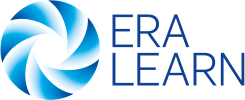
This project will explore to what extent near-term quantum computing may potentially provide better approximations to combinatorial optimization problems, bringing together expertise from quantum computing and applied mathematics. It is a collaborative effort within the Einstein Research Unit on Quantum Devices, involving the Freie Universität Berlin (FU Berlin), the Weierstrass Institute for Applied Analysis and Stochastics (WIAS), and the Zuse Institute Berlin (ZIB).
This pilot project tests a workflow from the design of hybrid quantum-classical algorithms to their simulation using quantum simulators on HPC hardware. The focus is on Noisy Intermediate-Scale Quantum (NISQ) algorithms and Quantum Approximate Optimization Algorithms (QAOA) that can approximately solve special problem subclasses.


